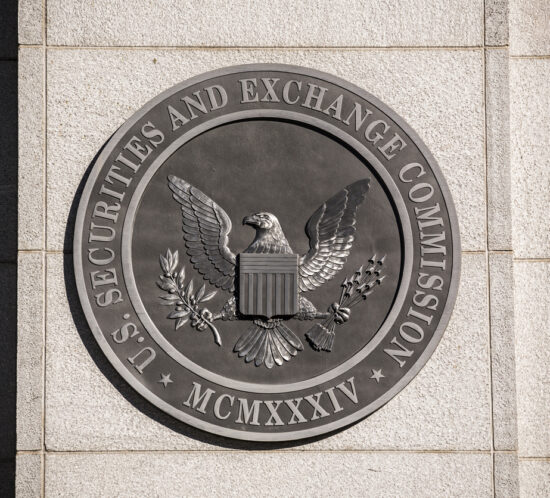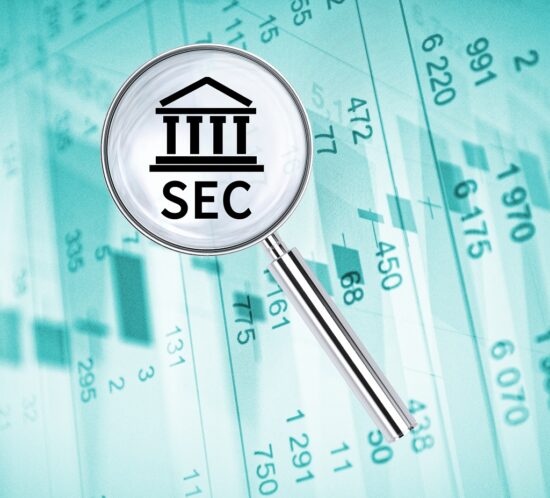CME Group to Wind Down European and Australian Repositories
Following an evaluation made by the CME Group, they have come to the decision to wind down the Abide Financial, NEX Regulatory Reporting businesses and their European and Australian Trade Repositories (TR).
As CME/NEX Abide is shutting down their TR business, all CME/NEX Abide clients must now select and perform portability to a new Trade Repository of their choice no later than 15 November 2020. This comes during a time of global turmoil and will impose various challenges on firms. Among others, it will require CME/NEX Abide clients to adapt to the new TR’s technical specification, and for EMIR, all historical data (inclusive of lifecycle and rejection reports) and open positions data needs to be ported. A challenge for most firms will be updating their historical contracts to meet the EMIR 2017 RTS requirement before being ported to the new TR. There is also a need to start early, as portability normally is done during weekends, and TRs only have a certain capacity to onboard in one day. Given the reality of needing to modify an existing reporting solution, the timeframe to port to a new TR is short.
On 23 June 2020 CSS will host a webinar together with our partner REGIS-TR, covering best practices and providing guidance before porting over to a new TR.
Click here to register for the webinar
How can CSS help?
CSS’s Global Transaction Reporting solution is file agnostic and has ready APIs to REGIS-TR, DTCC and UnaVista. The team behind CSS has experience with portability. We have already ported over a tier 1 client from CME/NEX Abide. By utilizing our best practices, CSS can reduce project risk and ensure that you meet the 15 November 2020 deadline when initiating the porting process from CME to a new TR of your choice.
Reach out to info@cssregtech.com if you need assistance today.
Private Fund Enforcement Order on Custody Rule Violations
Easy Pickings But Maybe Also Warnings of Valuation Expectations Even With COVID-19 Difficulties
Now that we are nearly into June, many private fund advisers have delivered their annual audit reports to all fund investors. That is because for private fund advisers using the Annual Audit Exception, or the “Audited Financials Alternative” as the SEC referenced it in a recent Settlement Order, the Custody Rule, Rule 206(4)-2 of the Investment Advisers Act of 1940, states that the annual audit financials must be delivered to all investors within 120 days of fiscal year end (fund of fund advisers have additional time). Many advisers readily accomplish this delivery deadline by sending the audited statements sometime in April in a “package” along with, among other investor communications, the Form ADV Part 2A of the annual updating amendment, which must be filed with the SEC within 90 days of FYE and delivered to clients within 120 days of FYE. (Although the SEC only requires delivery of the Part 2A to clients, and then (with a few nuances not worth mentioning here) only if there are material changes, as a best practice, many private fund advisers routinely deliver the Part 2A to investors on an annual basis and whether or not there are material changes year to year).
As again illustrated by a recent Settlement Order (the “Order”), the SEC is not reticent to penalize advisers for violations of the Custody Rule, including the failure-to-deliver component. The Custody Rule, after all, was created to protect client funds and securities from misappropriation and misuse, indeed at the heart of the SEC’s mission. Custody is one of those evergreen enforcement topics.
But, what do private fund advisers do if through no fault of their own, the adviser cannot timely deliver the audited financials? That may be the subject of negotiations of which one would rather not be a part, the recent Order suggests.
For advisers affected by COVID-19 and meeting other conditions, the SEC has provided some leeway, summarized in Custody Question VI.9. But, for other private fund advisers, there is little flexibility. Such was the case for one private fund adviser, recently penalized $60,000 for its Custody Rule violations, according to the Order.
The Order did not provide much detail or background. But, the adviser’s March 2020 Form ADV Part 2A, Item 15, available on the IAPD website, states that the adviser’s relevant funds “endeavor to comply with the Custody Rule’s exception . . . however, due to the nature of the investments . . . and various extenuating circumstances, such as the political climate in Cameroon, there have been significant delays in completing the annual audits for 2016, 2017, and 2018 . . . [the adviser] endeavors to complete the annual audits for 2016, 2017, and 2018 as soon as is practical.”
Not good enough, said the SEC. In the Order, the SEC recognized that the relevant fund’s stated investment strategy “focuses on private agricultural investments in Cameroon.” But, according to the Order, the adviser did not engage the PCAOB auditor for fiscal year 2014 and 2015 “until well after 120 days following the end of both of those fiscal years” and thus did not—could not—deliver audited reports on time. Further, for the following years, the adviser “did not succeed in engaging an audit firm to audit the [Fund’s] financial statements”—and, therefore, again did not—could not—timely deliver audit reports. In summary, thus, the adviser at times failed to timely deliver audited reports and at times failed to have the private funds annually audited and failed to deliver audited reports.
Reading between the lines of both the Order and the 2A, and connecting them to another perennial hot topic, valuation, it appears the adviser invested in hard to value investments, or at least hard to access investments. So, let’s connect all the dots, and get prepared:
- We know that the SEC demands strict compliance with the Custody Rule and the Annual Audit Exception, even with hard to access and hard to value assets in foreign jurisdictions.
- We know that the SEC wants clear disclosure around valuation practices and appropriate valuation methods for Level 3 assets.
- We also know that the global pandemic has challenged processes and resources, and that some investments have taken a hard hit.
- We also know that the SEC is focused on the private fund industry—evidenced by its recent series of published cases against private fund advisers and by the consistent murmurings of a soon-to-be issued Private Fund Risk Alert that focuses on common deficiencies of private fund advisers in SEC examinations and enforcement proceedings.
So, with all the dots connected, we know we must:
- Shore up processes on custody and valuation.
- Mitigate against COVID-19 repercussions and difficulties, which are getting less and less “unforeseen.”
- Review documentation around those processes.
- Test those processes and the adequacy of documentation.
- Update or clarify any disclosures around those processes and mitigation efforts as appropriate.
Custody and valuation mandates—whether derived from a rule, the fiduciary standard, obligations to investors, fairness principles, or something else—are pillars in the registered investment adviser space, and present circumstances of the global pandemic illuminate the pillars’ connection to investor protection and current SEC focus.
Even if you missed the intended audit report delivery deadline this year due to unforeseeable circumstances, get back on track for next year and also realize there is little regulatory relief when it comes to protecting customer funds. Expect developments on valuation and private funds, even with hard to value assets—even harder with COVID-19. Difficulty in the process may not afford flexibility in the regulator’s eyes, just as difficulty in auditing assets in Cameroon did not relieve an adviser of Custody Rule mandates.
Shareholder Disclosure: Long Holdings in Europe
Investment managers are subject to hundreds of threshold reporting rules throughout Europe, for long holdings, short selling, and dealing disclosures. The reason: applicable rules are the local laws of wherever the issuer is based or listed (and Europe is still far from fully harmonizing them). This map illustrates what the long position holder may face on any given day:
Other maps: Shareholder Disclosure: Low Notification Thresholds in Europe | Regulatory Changes to Sensitive Industries | Global Short Selling Restrictions in a COVID-19 Economy
[table-wrap bordered=”false” striped=”false”]

BelgiumIn addition to the standard regulator-imposed notification thresholds for long holdings, many Belgium issuers impose their own threshold disclosure obligations, at levels as low as 1%.
Czech RepublicInvestments in certain issuers with a minimum level of registered capital trigger a stricter disclosure obligation, at a 1% or 3% initial threshold rather than the standard 5%.
FranceAs in Belgium, many issuers in France set forth their own separate shareholder disclosure thresholds. The vast majority of blue chip issuers comprising the CAC 40 impose them, as do hundreds of other issuers large and small. Notification thresholds can start as low as 0.5%.
GermanyGermany’s financial authority (BaFin) has regularly required shareholders to submit additional supporting documentation with their disclosures, including a corporate structure chart of relevant managers and funds.
GreeceIn addition to its fixed thresholds that start at 5%, Greece requires additional notifications when holding at least 10% and increasing or decreasing holdings by at least 3%.
IcelandIceland’s regulator, the Financial Services Authority, has a tight notification deadline for shareholders reaching disclosure thresholds: one trading day.
IrlandeInvestors with long holdings in Ireland should be aware of several different disclosure regimes that may affect them. The “Transparency Regulations” impose the EU-required thresholds (starting at 5%), as well as stricter thresholds for investing in Ireland-registered issuers (3% and every higher percentage point). An additional set of thresholds for investing in Ireland PLCs are set forth in Ireland’s “Companies Act” (also 3% and every higher percentage point). Finally, the “Substantial Acquisitions” regime requires separate filings with different forms (at 15% and greater levels), among other restrictions. |

NorwayNot to be outdone by Iceland, Norway’s regulator has imposed a difficult deadline, obliging shareholders reaching a threshold to make their filing on that very same trading day. The regulator describes the deadline as “immediately”, which many filers interpret as requiring notification within one hour.
PolandLike Greece, Poland requires additional notifications for changes in holdings, if already holding at least 10%. But in Poland these further thresholds depend on the trading venue involved: notify upon 2% changes for holdings in Warsaw Stock Exchange-listed issuers, or upon 5% changes for issuers on other markets. (In addition, once holding 33%, notifications are required for every 1% change.)
PortugalPortugal sets forth no fewer than three different sets of long filing thresholds for shareholders (starting at 2%), depending on where the relevant issuer is registered and listed.
SpainShareholders considered to be based in a “tax or regulatory haven” must disclose their positions at every percentage point of holdings reached in a Spanish issuer, starting at 1%. (Spain’s changing list of tax havens has included jurisdictions such as Bermuda, the Cayman Islands, the Cook Islands, the British Virgin Islands, the US Virgin Islands, Saint Lucia, Gibraltar, Liechtenstein, Monaco, Isle of Man, and the Channel Islands.)
SwedenSweden’s financial regulator (Finansinspektionen), in detailed public announcements that identify offending shareholders, continues to levy frequent fines for late or missed substantial shareholder filings. Sanctions are commonly issued several times per month, each typically amounting to hundreds of thousands of Swedish Krona (tens of thousands in US Dollars), but can be much higher.
SwitzerlandAmong the several unique aspects of Switzerland’s shareholder disclosure regime, separate calculations are required, and separate notification obligations can be triggered, for the holdings categories “purchase positions” and “sale positions”. They include specific asset types, yet may also overlap one another in certain respects, as a shareholder calculates its positions and determines when to make a filing. |
[/table-wrap]
RegTech Radar: Foreign Investment Developments
The following RegTech Radar update focuses on recent changes in Japan’s Foreign Exchange and Foreign Trade Act (FEFTA) and additional foreign investment changes in New Zealand, France and Germany from end-April to mid-May. For any additional queries regarding substantial shareholding, position limit monitoring and sensitive industries, please contact us at info@cssregtech.com.
New Japan Foreign Investment Threshold Provides Blanket Exception for Financial Institutions
An overview of the recent changes in Japan’s Foreign Exchange and Foreign Trade Act (FEFTA).
Japan has released a new 1% threshold rule for Foreign Investment in their 12 core areas; however, they have allowed a blanket exception for foreign financial institutions such as:
- Securities firms
- Banks
- Insurance companies
- Asset management companies
- Trust companies
- Registered investment companies (including mutual fund and exchange-traded fund)
- High-frequency traders
The amendments to FEFTA entered into force on May 8th and will apply to investments in listed companies completed on or after June 7, 2020.
An English summary of the changes is available at here.
Relevant Issuers:
In general, the FEFTA amendments lower the threshold for prior approval notification from 10% to 1% (share capital or voting rights) investments in Japanese listed companies in certain sectors. Under the new law, business sectors have been reclassified as non-designated sectors, designated sectors or designated “core” sectors. [See English summary above at page 9 for details on sector classification.]
- A new classification of listed issuers by sector category was published on May 8th by the Japanese Ministry of Finance.
- Investments in issuers operating in the 12 core designated sectors (e.g. weapons, nuclear, aspects of cybersecurity, etc.) are subject to the most reporting. No prior reporting in required relation to issuers in non-designated sectors.
- Notable issuers on the core business sectors list include Toyota, Sony and SoftBank. There are more than 500 listed issuers now classified as operating in a core designated business sector.
Thresholds:
There are several exemptions that limit the practical application of the 1% prior notification requirement:
The most relevant for our clients is the blanket exemption available to foreign financial institutions, which includes asset management companies and investment companies.
- The blanket exemption means no prior notification is required if certain investment conditions relating to management/activism are satisfied.
- Nonetheless, a post-investment report must be filed when shareholding reaches 10% or more in a company operating in any designated business sector within 45 days. This is an existing obligation; only the reporting deadline has changed.
A general exemption is available for other, non-FI foreign investors, including authorized sovereign wealth funds and pension funds:
- When investing in non-core business sectors, no prior notification is required from a general investor if certain investment conditions are satisfied.
- When investing in core designated business sectors, prior notification required only when reaching 10% or more shareholding.
- For general investors, a post-investment report is required when reaching 1% or more shareholding in a company in a designated business sector (including core sectors).
No exemption is available for state-owned enterprises or for investors who have been sanctioned under the FEFTA. (The exemption is also not available when FI and FI investors fail to satisfy the investment conditions relating to management and activism). For these non-exempted investors, the 1% prior notification requirement will apply fully.
Summaries of the Recent Foreign Investment Changes in New Zealand, France and Germany from end-April to mid-May
The governments of Germany, France and New Zealand are implementing changes to their respective foreign investment screening procedure in response to the COVID-19 pandemic. (Earlier in this situation we saw the tightening of foreign investment rules in Italy, Spain and Australia.)
New Zealand:
The New Zealand Government announced amendments to its foreign investment screening procedure that will temporarily require notification to the government of transactions where an overseas person’s ownership interest reaches or exceeds 25%, 50%, 75% or 100% in a New Zealand company. In contrast to existing legislation, notification under the temporary rule change will apply regardless of the dollar value of the transaction. Additionally, a “national interest” test for all screened transactions will be introduced. These changes are expected to take effect in mid-June.
For more information, see the Treasury announcement here.
France:
The French Ministry of Economy announced two changes to France’s foreign investment screening. First, a new sector – biotechnology – has been added to the list of critical technologies subject to investment screening in France. Second, the Ministry has proposed a temporary lowering of the threshold that triggers the screening procedure, from 25% voting rights to 10% voting rights when held by investors from outside of the EU and EEA investing in French listed companies. Once in effect, this lowered threshold is will apply until the end of 2020. A decree lowering the threshold is expected to enter into force in the second half of 2020. (Note that these announced changes are in addition to recent changes in April which saw additional sectors and lowered thresholds under a broader reform of France foreign investment review procedure that predated the current situation.)
For more information, see the Ministry of Economy’s announcement here.
Germany:
The German Ministry for Economic Affairs and Energy (BMWi) has proposed revisions of Germany’s foreign investment review procedure that will expand the sectors captured by the investment review to include the health sector, specifically, makers of personal protective equipment, vaccination developers and medical devices for the treatment of infectious diseases. The BMWi also brought forward previously planned amendments to include governmental communication infrastructure and specific raw materials sectors in the investment review procedure. Investments made in these sectors by non-EU, non-EEA parties will be subject to potential review when reaching 10% of the target company’s shares. The proposed changes are currently in the federal legislative process and expected to take effect in mid-May.
For more information, see BMWi announcement here.
New York Rule Modernization Proposal
We have learned of a potentially major change for New York state and federally covered investment advisers. The New York Department of Law is proposing to revise and modernize the rules within Title 13 NYCRR Part 11 to achieve a coordination of registration and notice filing requirements with other states.
If the rule change proposal is adopted, it will have significant impact to investment advisory firms with respect to individuals acting in the capacity of investment adviser representatives, firm principals and solicitors. Specifically, the definitions of an investment adviser representative, solicitor and principal would be added, and registration would be officially mandated for these securities industry persons. An “investment adviser representative” would be a natural person who represents an investment adviser, solicitor or federal covered investment adviser when performing any act that defines an investment adviser under NY’s General Business Law. An investment adviser representative would also include a natural person who performs acts for a federal covered investment adviser, unless the natural person represents a federal covered investment adviser and does not have a place of business in New York. Any natural person supervising any investment adviser representative would be deemed to be an investment adviser representative subject to New York’s investment adviser representative registration and the written examination requirement. So, in short, New York would now require U4 filings for investment adviser representatives with a place of business in New York!
The CRD system will be utilized for the registration process to include submission of the applicable registration fee and the validation of registration qualification. At the current time, we do not have information about the timing and requirements for compliance with the rule changes, if adopted.
Other revisions are included in the proposal for investment advisers relating to recordkeeping requirements for the verification of an “accredited investor” or “qualified client.”
The public comment period for the proposal closes on June 14, 2020. We will monitor the progress and provide updates as they become available. Please reach out to us if you have any questions on the potential rule changes: info@cssregtech.com
The full text of the proposed revisions to the regulations, including those for broker-dealers, can be found here.
A Familiar Theme in Unfamiliar Times
Recently, the SEC settled with a private equity adviser for failing to adequately disclose and obtain consent for conflicts of interest associated with portfolio compensation. The Administrative Order reminds us of familiar tenets to regulatory disclosure, and perhaps this familiarity is reassuring to us in these unfamiliar, pandemic times.
However familiar the theme, this case is a healthy reminder of the need for specific disclosure. Apparently, according to the Order (findings were neither admitted nor denied), since 2007, the adviser had provided portfolio companies of one its funds with “operationally-focused services” to drive business improvements and add value. More specifically, an in-house “Operations Group,” comprised at least at certain times of two lead “operating partners” supervising five portfolio company employees and 12 contractors, provided these services. As you may guess, the adviser billed the portfolio companies at an hourly rate to cover most of the costs of providing the services and did not cover these costs with the management fee. The payments represented 33.3% of all revenue received regarding the fund during the relevant period.
The crux of the violations is, as said, familiar: the adviser did not provide full and fair, timely disclosure to all of the fund’s investors that was sufficiently specific so that the investors could understand the conflicts of interest and have the knowledge to consent or reject to the practice. Among other undertakings, the adviser now has to pay disgorgement, prejudgment interest, and civil monetary penalties totaling $1,926,579.
Here, interestingly, is what the adviser did do.
- The adviser disclosed in the fund’s LPA that portfolio companies are responsible for fees paid to the adviser including “monitoring fees, consulting fees, directors’ fees and other similar fees.”
- The adviser disclosed, at least at times, in the Form ADV Part 2A, that “under specific circumstances, [adviser] operating professionals may provide services to portfolio companies that typically would otherwise be performed by third parties” and that the adviser “may be reimbursed” for costs related to such services.
The SEC was not impressed with these disclosure attempts. The Order states that:
- The adviser did not sufficiently disclose that “it did, in fact, routinely provide such services, that it did, in fact, receive reimbursements from portfolio companies for such services and that the reimbursement rates were designed to recoup most (but not all) of [the adviser’s] costs of maintaining the Operations Group.”
and
- The adviser did not mention the facts in its Form ADV Part 2A, Item 2, Summary of Material Changes when it first disclosed the practice in the 2A.
The relevant period for the violations was April 2012 through December 2016—and it is not clear from the Order what facts absolved or prevented the wrongfulness prior to and after that time, if we assume similar facts spanned from before 2012 (at least starting from 2007) and after 2016. But we do know this:
- You must scrub your disclosures for the use of the word ‘may.’ Regulators have been saying every which way that ‘may’ is an inappropriate word when making a regulatory disclosure. Consider the various ways to change it, as there are several. For example, “The adviser has the authority to and with one fund has …”
- Offsets to management fees are important. If you do not offset, the regulators may see double-billing for the same set of services. The amount of offset also is important. (Remember the transaction fee compensation issue; likely that needs to be at 100% even if other portfolio company derived compensation can hover around 80% or some other negotiated rate.)
- The SEC, although now understanding the industry uses “operating professionals,” scrutinizes these relationships, including compensation to and disclosures around them.
- You must disclose conflicts of interests to fund investors, and the disclosure must be specific and timely.
- You cannot provide consent for conflicts of interest when you are conflicted.
It is comforting to really know something in these unprecedented times. And we know the SEC demands specific, timely disclosures around portfolio compensation. Most of you have carefully considered and applied these regulatory disclosure tenets, particularly around compensation. If you have not, now is the time. Even if you have previously reviewed your disclosures around portfolio compensation, operating professionals, and offsets, and you have scrubbed your 2A for ‘may,’ how about testing: for example, make a chart of all forms of compensation; connect the compensation to authority in the fund documents; and connect the authority and practice to specific Form ADV disclosure. Ask yourself if there are any undisclosed material facts. When was the last time you used your limited partner advisory committee to discuss a conflict of interest? Let’s get these basic concepts covered, so that you can go on and run your business during these difficult times and beyond. We are here to help you. Please email our CSS regulatory experts at info@cssregtech.com.





















